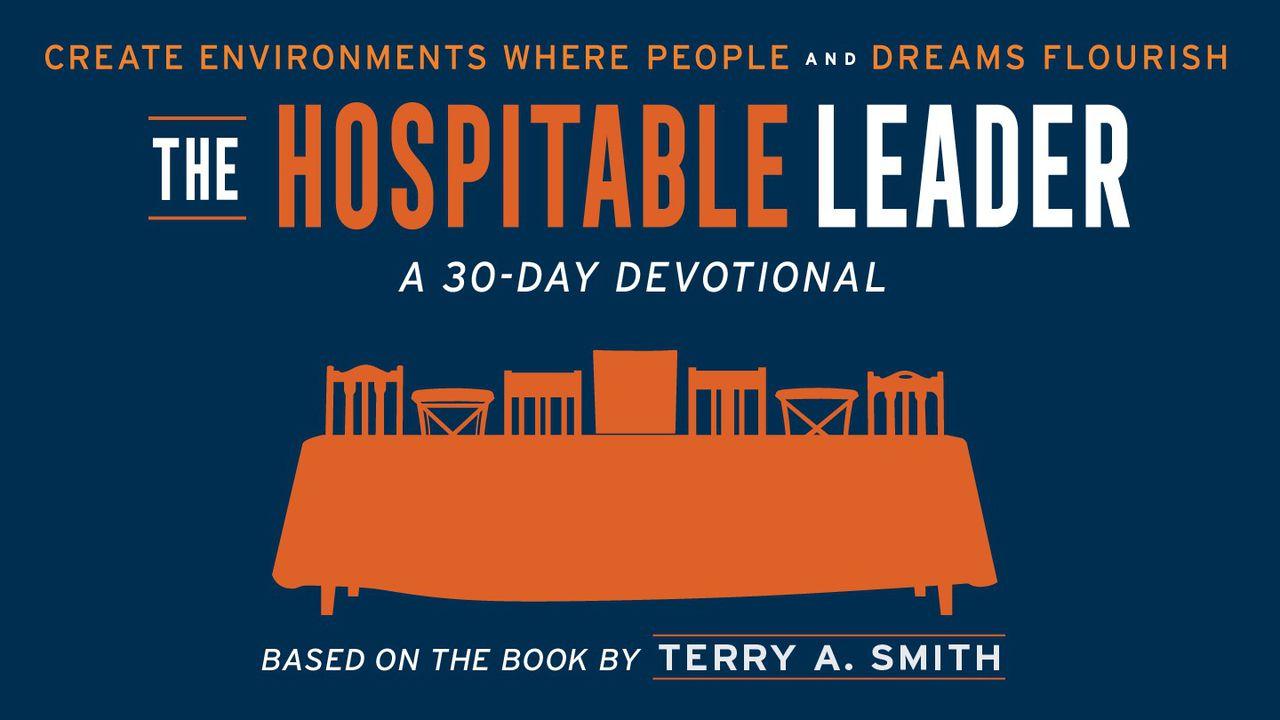The Hospitable Leader DevotionalExemplo

Passover was a celebration where Jewish people would sacrifice a pure lamb to God, as they commemorated God liberating them from their former slavery under the Egyptians. The Jewish people at this time still viewed themselves as “in exile,” or separated from their promised future with God. Thus, this celebration would be colored with celebration of the past and hopeful expectation of the future redemption of the people of God. Jesus, however, knew that more was happening at this dinner. That night, he was to be the ultimate Passover “lamb,” the fix to all of Israel’s issues (and the rest of the world’s), and the one who would bring the world out of exile and into the arms of God. This was the inaugurating dinner of the climax of human history.
So this was a pretty important meal. Christ took great care to give instruction for the dinner. He instructed them to prepare all of the necessities for the dinner, which would have included sacrificing a lamb at the temple, then roasting it, preparing the room, even making side dishes, and more. Interestingly, he seems to have either prearranged, or miraculously arranged, for the whole endeavor, as the jar-carrying man and master of the house would be prepared for the disciples when they saw them and have a “furnished” room ready. The disciples hadn’t prepared this; Jesus had. Needless to say, Christ wasn’t taking any shortcuts for this significant dinner.
But we have to take this in full context. As Christ was asking his disciples to prepare a purposeful meal and environment for the meal, he was doubly aware of what would happen right after the meal: multiple disciples would betray him, he would be crucified, and they would all doubt that he was actually the Messiah they thought he was. Thus, imagine being Jesus, arranging for a wonderful meal when he knew all of his followers were about to abandon him and that he was about to be painfully executed.
It seems there are two main considerations that make Jesus’ hospitality here lavish: he’s personally preparing for the most important—and excruciating—moment of his mission, and the people he’s throwing the meal for are going to abandon him. Many of us cut the corners on hospitality, or on making warm environments for people around us, because we have “too much to do,” or we don’t want to have to host certain people with whom we may not be in perfect relational standing. Leaders may be facing issues with their followers, parents may be fighting with their kids, coaches may be dealing with a losing team. All of these reasons can make us rationalize that taking time to create inordinately hospitable environments is unnecessary, when in fact it is exactly what they need. When we face strife with those around us, it’s not just quantitative success that helps someone follow us again; it’s that we have the personal, loving trust of those around us.
On the other side of Christ’s death, his followers came back (even Judas faced great remorse for his actions). Do you think it was only because he appeared to have miraculously rose from the dead (i.e., was successful), or because they had also personally experienced the unique love of a savior through his unusual hospitality?
Escritura
Sobre este plano

We live and lead in inhospitable places. Many leaders, hoping to change the world for the better, only add to the darkness. This devotional, based on the principles found in The Hospitable Leader by Terry A. Smith, engages the scriptural idea of becoming a leader that creates hospitable environments where people and dreams flourish. You will learn to lead like Jesus as he revolutionized the world through his hospitable way of welcoming in a diversity of strangers, promoting beauty, speaking truth in love, and much more.
More





